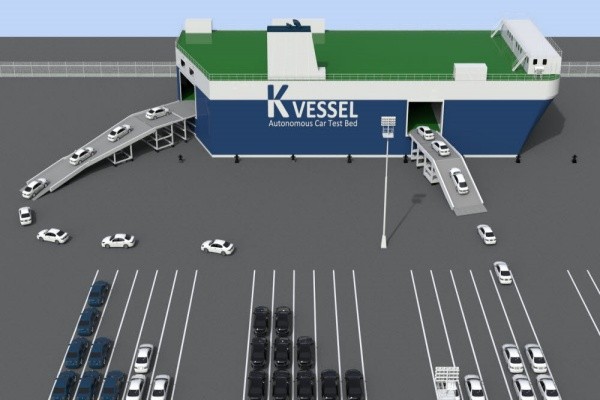The Korea Transport Institute (KOTI) announced on Sunday that it has formed a consortium with companies that specialize in different fields such as port, 5G, IT, and ship parts and has begun studies on development of ‘autonomous vehicle automatic loading and unloading system’ technology and international standards in order to increase efficiency in transportation of cars and strengthen the country’s competitive edge in car exports. The consortium is expected to invest about $17 million (19.3 billion KRW) for the next seven years in the project.
The consortium plans to commercialize a technology that will assist autonomous vehicles to enter a car carrier on their own and find their appropriate spots. By digitizing work related to importation and exportation of cars that are currently done manually, the consortium looks to raise work productivity and grab an upper hand in establishing international standards related to transportation of autonomous vehicles.
Some of major projects that the consortium will work on include unmanned unloading and loading work through autonomous driving, automatic placement of autonomous vehicles within car carrier based on optimal algorithms, transmission of direction of work through 5G, real-time understanding of cars’ location, and development of technologies that will support autonomous driving of vehicles within terminals and ship. Technologies developed by the consortium will be applied to production plants of automakers and inland distribution points (railroad and train station), international distribution points (terminal and port), and maritime means of transportation (ship and passenger ship).
The consortium is made up of ro-ro port technology company LKSYS, port logistics system company Total Soft Bank, navigation company Mappers, 5G V2X (vehicle to everything) company Ability Systems, and ship and ship parts manufacturer Keumha Naval Technology. Vehicle and communication quality certification company Kiwa Korea will also participate as a committed research institution.

The consortium predicts that development of related technologies and standardization and certification processes will take about four years and three years respectively. During a course of seven years, the consortium will work on analysis and design of related technologies, development of core fundamental technologies, development of business models, comprehensive analysis on systems, demonstration of technologies, and technology upgrades.
Noh Hong-seung, who is a senior researcher at the KOTI, said that South Korea will become the first in the world to secure an autonomous vehicle automatic loading and unloading system if the project are to be successful and that commercialized technologies will raise efficiency in transportation of cars at ports and improve the country’s competitive edge in car exports. He also added that the consortium will also focus on establishing a global certification center and commercializing developed technologies so that South Korea can lead establishment of global standards in the field of certification technology system and operation management.
According to the Ministry of Oceans and Fisheries, productivity of car-related ports in South Korea will be raised by 30% annually once the development of automatic loading and uploading system becomes successful. Because time of loading and unloading cars will be reduced through the system, cost of having ship wait at ports and cost of loading and unloading cars can be reduced. Economic derivative effects are also expected to be significant if related technologies are applied to shipping industry and automotive industry, port industry, logistics IT industry and shipbuilding industry. Lastly, the system is also expected to reduce amount of pollutants emitted from ship and create jobs through development of new business models.
Staff Reporter Lim, Joongkwon | lim9181@etnews.com